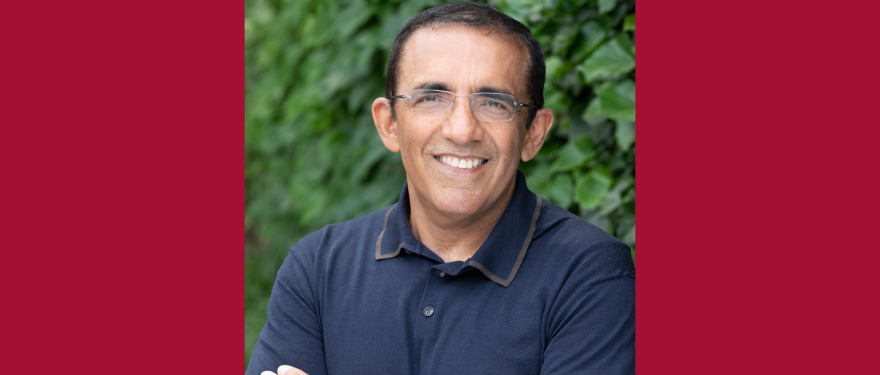Why get an MBA? Many of my students are excited to acquire the tools that will help them solve the complex challenges that await them in the business world.
That is admirable, but I have found that my most successful students are also guided by a personal sense of purpose. Their unique personal narratives – combined with a strong moral compass – clarify which direction they want to take in their MBA studies. Then, when they enter the job market, they are more likely join a company that aligns with their individual purpose. This unlocks a sense of commitment and ownership within them that powers the company as a whole.
If these purpose-driven graduates choose to start their own company, they are more likely to instill the same intention within their employees – one that is lasting and familial. Each employee feels a sense of connection that stays strong despite the setbacks that are inevitable at any startup.
In my classes I show how it is entirely possible to build a business that both makes a profit and improves the lives of all its stakeholders, including society as a whole. In order to reach that point, though, companies need to achieve a sense of deep purpose.
This isn’t some kind of Pollyanna pronouncement. I have found in my research that executives who committed to a deeper purpose at their companies were more likely to post superior financial results in the long term. The companies were as diverse as Lego (which proclaims that “only the best is good enough”), Microsoft (whose purpose is “to empower every person and every organization on the planet to achieve more”), and Warby Parker (which seeks “to inspire and impact the world with vision, purpose and style”).
I recently interviewed 10 top executives for a podcast, and these conversations strengthened my conviction that pursuing a business career with deep purpose can be a powerful way to make a lasting difference in the world. Here are three common themes that emerged from the executives:
They allow their personal experiences to energize their efforts. Over and over, I heard from executives that conveying their purpose in a personal and authentic way helped them achieve buy-in from stakeholders. For example, David Vélez, co-founder and CEO of NuBank, the world’s largest digital bank, likes to share the powerful memory of trying to open a bank account in Brazil when he was a teenager. The suspicious armed guards made him feel like a prisoner, and it took him 30 hours to open a simple account. That experience served as a moral imperative for him to create a better banking experience for others.
I was especially struck by the comments of Rosalind “Roz” Brewer, CEO of Walgreen’s Boots Alliance. Her difficult experience as an end-of-life caregiver for her parents has helped inform Walgreen’s purpose of inspiring “more joyful lives through better health,” she said. As she put it: “I don’t want anyone else to have to go through what I did.”
They have been willing to walk along “the razor’s edge” to serve multiple stakeholders. Leaders committed to deep purpose realize that there must sometimes be painful tradeoffs as they struggle to balance the needs of customers, employees, partners, shareholders, and society. This means they must frequently deal with discomfort, ambiguity, and contradictions. They know that they will face criticism when, say, quarterly results are disappointing or when healthier menu or store offerings lead to lower sales. But guided by a clearly defined sense of purpose, they hold true to their ideals.
They understand that their employees make or break their business. As David Vélez, the NuBank CEO, put it: “The culture of a business is built by the first 10 to 15 employees in the first six months of life.” He has made sure to hire people who have the “courageous gene” because they are aligned with his purpose, and they are willing to take risks and endure adversity.
These executives also stick by their employees when times are tough. I heard many stories from executives about sacrifices that companies made during the pandemic to help their employees. One such company was Arcos Dorados, the world’s largest independent McDonald’s franchisee with over 2,000 locations in Latin America and the Caribbean. Even as sales were plummeting as the company closed most of its dining rooms, it promised not to lay off its workers. “We had a duty to these people working for us,” Woods Staton, the founder and executive chairman of Arcos Dorados, told me. “We had a moral obligation. They put their trust in us, so we have to take care of them.” This commitment to workers did not go unnoticed by customers, who praised the company for its actions.
As these executives demonstrated, purpose can serve as a compelling North Star on the path to multidimensional success.
Ranjay Gulati is the Paul R. Lawrence MBA Class of 1942 Professor of Business Administration at the Harvard Business School and the author of Deep Purpose: The Heart and Soul of High-Performance Companies (Harper Business). Listen to the Deep Purpose podcast here.

